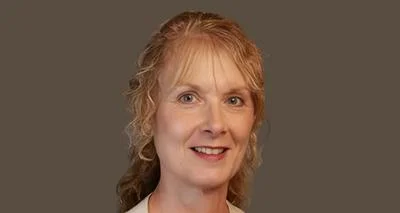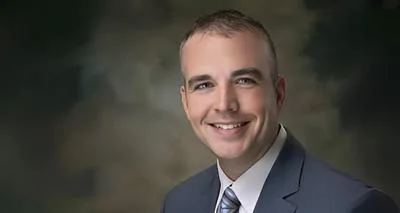Meeting | Unsplash by Christina @ wocintechchat.com
Meeting | Unsplash by Christina @ wocintechchat.com
MNEA representatives on MACCE are Paul Aubrey (North Kansas City NEA), Lisa Baldwin (North Kansas City NEA), Francine Hill (Francis Howell NEA), Jacqueline McGill (Hazelwood NEA), Cary Sikes (Springfield NEA), and Dr. Alexander Tai (Columbia MNEA).
Teacher Workforce Report
Dr. Paul Katnik, DESE Assistant Commissioner of the Office of Educator Quality, updated the Council on the state of the Teacher Workforce in Missouri.
Dr. Katnik delivered the same report that he delivered at the January 2023 State Board Meeting. This report is a regular update from DESE so that the Board can review current data to inform policy, discussion, and decisions surrounding teacher recruitment and retention. These numbers are generated by self-reported data from districts in Missouri so DESE is unsure if the data includes positions that were never filled.
Specific data points from this report include:
- Total enrollment in Educator Prep Programs has increased 25% since 2017-2018 but this is still an 11% decline from a decade ago.
- There is a 7% decline from last year in the number of Teacher Certificates issued. Additional certifications for educators already certified have also declined.
- There has been an increase in Provisional Certificates issued to educators and 260 of those Provisional Certificates are for student teachers in Missouri. These student teachers have been hired by the school district as the teacher on record.
- There has been a drop in teacher retention rates from 90% to 88%.
- There has been a steady increase in hiring new teachers in districts.
- Forty percent of districts’ new hires are from another district, which is adding to teacher mobility in Missouri. This mobility contributes to lower retention rates in districts.
- First-year teacher retention rates have increased for the first 3 years in the classroom but rates decline after 5 years.
- Inappropriately certified teachers by content area include the following subject areas:
- Elementary Education 1-6
- Mild/Moderate Cross Categorical K-12
- Early Childhood Special Education B-3
- Early Childhood Education B-3
- Social Science 5-9
- Physics 9-12
- Mathematics 5-9
- Severely Developmentally Disabled B-12
- Biology 9-12
- General Science 5-9
The current strategies of retention grants, career ladder, and workgroups to explore climate, culture, and working conditions are all in place to improve retention of educators. This spring, there will be a work group that focuses on climate, culture, and working conditions. A measure of success that the Office of Educator Quality will look towards in terms of recruitment is enrollment in Educator Preparation Programs.
Review of Subject Area Certificate Requirements
Dr. Beth Kania-Gosche, MACCE Member representing Missouri Association of Colleges for Teacher Education (MACTE), President for MACTE, and professor at Missouri S&T, is organizing MACCE members in the review of Subject Area Certificate Requirements to update them and propose rule changes.
Dr. Kania-Gosche has brought to MACCE’s attention the need to update Subject Area Certificate competencies for Educator Preparation Programs (EPP) to prepare students. These competencies have not been looked at for decades and need updating. This work will be done in subcommittees with individuals from MACCE and other individuals that the subcommittee finds appropriate for the subject area they are reviewing. The first subject area that they will review will be Secondary Mathematics Competencies based on what they have heard from EPPs, Math Educators, and recent graduates of EPPs.
Teacher Development
Dr. Bobbie Jo Lewis, DESE Coordinator of Teacher Development, updated the Council on various programs in the Office of Educator Quality.
Milken AwardOn January 19, 2023, Vanessa Thomson, 2nd Grade Teacher and MNEA Member at Chapel Hill Elementary School in North Kansas City Schools, was awarded the Milken Educator Award for 2023. The Milken Award includes “powerful networking and development tools throughout their careers in education” and a $25,000 unrestricted check directly to the educator. The next round of the award is starting up and more information can be found here.
Missouri Teacher Development System (MTDS)There are currently 1,517 Missouri teachers enrolled in MTDS and 6 teachers presented their Action Research at the Powerful Learning Conference in January 2023. MTDS is currently marketing and scheduling for 2023-2024 cohorts.
MTDS structures their development system on Learning Forward’s Standards for Professional Learning. More on those standards can be found at the Learning Forward website.
More information about MTDS can be found here.
Teacher of the Year (TOY)Christina Andrade Melly, Ritenour High School English Teacher and Ritenour NEA President, was awarded the 2023 Missouri Teacher of the Year in October 2022.
The 2024 Teacher of the Year nominations are currently open until April 14 at 11:59 PM. At the time of MACCE’s meeting in February, there were 101 nominations that had been started at the district levels.
Regional Teacher of the Year Applications open on May 12 along with a clinic to support applicants for the Teacher of the Year application process. The application period for Regional Teacher of the Year closes on June 14. From June 15 to July 15, Regional Teachers of the Year will be selected, and the Teacher of the Year Application Period begins. Visit DESE’s website to learn more about the Teacher of the Year program and the timeline for the process.
Leadership Development
Dr. Jim Masters, DESE Coordinator of Educator Evaluation and Training, gave a brief overview of the Missouri Leadership Development System.
Missouri Leadership Development System (MLDS)“The primary purpose of the Missouri Leadership Development System (MLDS) is the development and support of effective school leaders. The MLDS Competencies are aligned to the Professional Standards for Educational Leaders (PSEL)” (DESE). There are currently 1,600 Leaders in the MLDS. The program is funded by a 3 year SEED grant from the Department of Education along with Title IIA funds. In 2022, the Wallace Foundation highlighted MLDS for their work.
Educator PreparationDr. Daryl Firdley, DESE Educator Preparation Coordinator, updated the Council on Educator Preparation’s response to multiple DESE Initiatives.
Literacy Standards Similar to the update that Dr. Fridley delivered to the State Board in January 2023, MACCE board members were updated on the changes to literacy competencies in various certification areas due to the recent passage of Senate Bill 681. These changes must be made in Rules in the Code of State Regulations along with Missouri Standards for the Preparation of Educators (MoSPE). The MoSPE changes will happen first followed by rule changes due to the length of time in protocols for each.
Missouri Standards for the Preparation of Educators (MoSPE)DESE is planning to update MoSPEs since they are currently, largely conceptual and not as useful as they could be for Educator Preparation Programs (EPPs). The goal is to make MoSPE Standards more useful and remove any unnecessary obstacles with the guiding question: “In what way does this contribute to a stronger first year teacher in the classroom next to me?” Any revisions to MoSPE will have to be approved by the board with a vote, presented to the public for comment, a new rule created, and then a new date selected for MoSPE.
Teacher Preparation Entry Assessment DESE is looking for ways to remove barriers to becoming a teacher in the state of Missouri. They have researched Teacher Preparation Entry Assessments and are looking to no longer require Entry Assessments for EPPs. They found that the Entry Assessments…
- Do not lead to more effective teachers.
- Are redundant.
- Do not affect all groups equally.
- Exacerbate the teacher shortage.
- Increase the cost of becoming a teacher.
- Create a barrier that does not exist in most other states.
- Are not required for all candidates already (because they had already completed an undergraduate degree).
Changes to Qualifying Scores for Advanced Programs Earlier this year, the State Board approved the number of items to achieve a qualifying score on the Elementary Education exam. This accepted recommendation only asked the board to acknowledge the change in ranges of qualifying scores and does not aim to lower the standard for teachers in Missouri.
The contract for exams such as the MoGEA and MEGA exams is running out in 2024 so DESE is in the process of writing requests for testing company proposals (either Pearson or ATS). Dr. Fridley explained that DESE is looking at aligning these Educator Preparation exams to standards or competencies for teachers as they are not closely tied to any standards at this time. This alignment would create more succinct preparation of Missouri Educators across the state because it would give all Educator Preparation Programs (EPP) standards or competencies to align their curriculum to. MACCE was asked what these standards or competencies should be but there was no official timeline of when the process of creating these standards or competencies would be.
Teacher ApprenticeshipsCurrently, there are teacher apprenticeship models being employed at Missouri State University in Springfield. It is a decentralized model as DESE is just connecting people and entities such as Educator Preparation Programs and School Districts. More information regarding Teacher Apprenticeships in Missouri can be found here.
The next MACCE meeting will be held virtually on April 3, 2023. If you have any questions or suggestions, please contact Samantha Hayes or Rebeka McIntosh at 800-392-0236 or by emailing Samantha.Hayes@mnea.org or Rebeka.McIntosh@mnea.org.
Information about MACCE can be found here at the DESE website.Past MACCE meeting reports from MNEA can be found here at the MNEA website.
Original Source can be found here.






 Alerts Sign-up
Alerts Sign-up